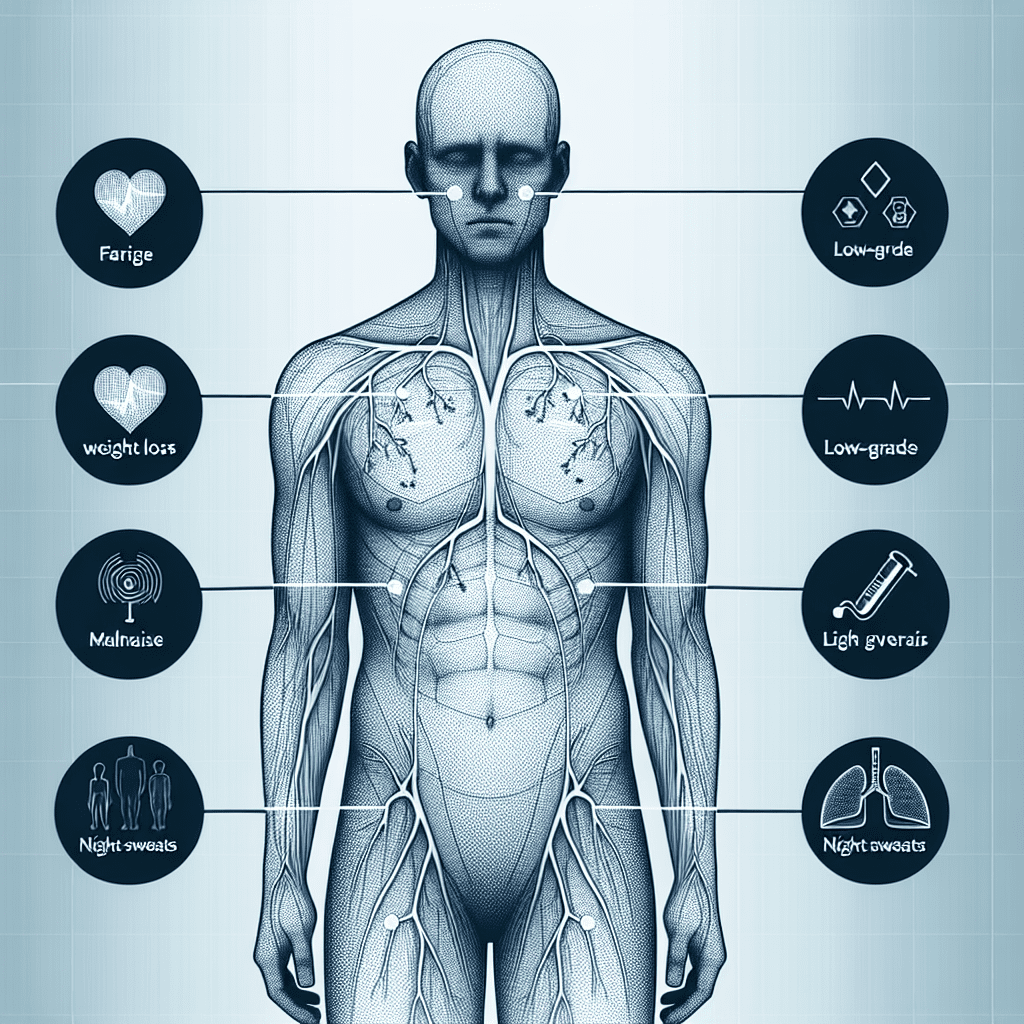Have you ever felt “off” but couldn’t quite put your finger on why? Maybe you’ve been more tired than usual, experiencing unexplained weight changes, or just not feeling like yourself. These subtle signals could be constitutional symptoms—your body’s way of whispering that something needs attention.
Constitutional symptoms are those general signs that affect your entire body rather than just one specific area. They include fatigue, fever, unexplained weight loss, night sweats, and changes in appetite or sleep patterns. While these symptoms might seem vague or ordinary, they often serve as important clues to your overall health status.
Many of us brush these signals aside, attributing them to stress, busy schedules, or just “getting older.” But what if I told you that tuning into these constitutional symptoms could be the key to understanding your body’s unique needs and finding balance in your health journey?
Traditional healing systems have long recognized the importance of these whole-body indicators. In fact, constitutional symptoms form the foundation of personalized health assessment in many Eastern medical traditions, where they’re seen as reflections of your body’s fundamental nature and current state of balance.
Understanding Body Constitutions in Traditional Chinese Medicine
In Traditional Chinese Medicine (TCM), your body constitution isn’t just about your current health—it’s about your inherent tendency toward certain patterns of balance or imbalance. Think of it as your body’s default settings or baseline tendencies.
Unlike Western medicine, which often treats symptoms in isolation, TCM recognizes that constitutional symptoms reveal important patterns about how your body functions as a whole. According to this ancient wisdom, people generally fall into several constitutional types, each with distinct characteristics and tendencies.
The main body constitutions in TCM include:
Balanced Constitution: Lucky folks with this constitution typically enjoy good health, abundant energy, and resistance to illness. They adapt well to environmental changes and maintain equilibrium easily.
Qi-Deficiency Constitution: If you tire easily, speak softly, and tend to catch colds frequently, you might have this constitution. Constitutional symptoms often include shortness of breath, sweating with minimal exertion, and a general lack of vitality.
Yang-Deficiency Constitution: Do you constantly feel cold, especially in your hands and feet? People with this constitution typically show constitutional symptoms like sensitivity to cold environments, pale complexion, and preference for warm foods and drinks.
Yin-Deficiency Constitution: Characterized by internal heat signs, this constitution often manifests as dry mouth, hot palms and soles, afternoon flushing, and restlessness. Constitutional symptoms might include night sweats without fever and difficulty sleeping.
Phlegm-Dampness Constitution: If you tend toward a heavier build, feel sluggish after eating, and experience sensations of heaviness or bloating, you might have this type. Constitutional symptoms often include a feeling of fullness in the chest and a tendency to produce phlegm.
Dampness-Heat Constitution: This constitution shows up as oiliness, especially on the face, tendency toward acne, bad breath, and sensations of heaviness in the limbs. Constitutional symptoms might include yellow urine and irritability.
Blood Stasis Constitution: People with this constitution often experience sharp, fixed pains, dark complexion, and dry, rough skin. Constitutional symptoms can include painful periods for women and a purple tinge to the lips or tongue.
Qi Stagnation Constitution: If you’re easily stressed, experience mood swings, and feel frequent discomfort in your chest, sides, or abdomen that comes and goes, this might be your constitution. Constitutional symptoms often include sighing frequently and digestive issues that worsen with stress.
Special Constitution: Some people have unique sensitivities or allergic tendencies that don’t fit neatly into other categories but still influence their overall health pattern.
Understanding your constitutional type isn’t about labeling yourself with health problems. Rather, it’s about recognizing your body’s natural tendencies so you can make choices that support balance rather than push you further into patterns of disharmony. When you know your constitution, you gain insight into which foods, activities, and environments will help you thrive—and which might trigger constitutional symptoms signaling imbalance.
Assessing Your Constitutional Symptoms: The Art of Listening to Your Body
How do practitioners determine your body constitution? In Eastern medicine traditions, assessment isn’t just about laboratory tests (though those have their place). Instead, it involves careful observation and questioning to build a complete picture of your health.
The assessment of constitutional symptoms typically includes:
Observation (Looking): A trained practitioner observes your complexion, body build, movements, and even the coating on your tongue. For example, a pale, swollen tongue with teeth marks along the sides might indicate a Qi-deficiency constitution, while a redder tongue with little coating could suggest Yin deficiency.
Listening and Smelling: The quality of your voice, your breathing patterns, and even body odors provide clues about your constitution.
Questioning (Asking): Detailed questions about your energy levels, temperature preferences, sleep patterns, digestive function, and emotional tendencies help reveal constitutional patterns.
Pulse Reading: The traditional practice of reading multiple pulse positions provides information about different organ systems and their states of balance.
What makes this approach so powerful is its holistic nature. Constitutional assessment doesn’t separate physical sensations from mental health—it recognizes that they’re deeply interconnected. For instance, someone with a Qi stagnation constitution might experience both physical symptoms (like chest tightness) and emotional ones (like irritability or depression) when out of balance.
You can begin to assess your own constitutional symptoms by asking yourself questions like:
- Do I generally feel warm or cold compared to others?
- Am I energetic throughout the day or do I experience energy slumps?
- How do I respond to different weather conditions?
- What foods leave me feeling energized versus sluggish?
- Do I tend toward particular emotional states when stressed?
These simple self-observations can help you start identifying patterns in your constitutional symptoms and gain insights into your body’s unique language. Research on conditions like Systemic Lupus Erythematosus shows how constitutional symptoms can be important early indicators of underlying conditions.
Self-Assessment Tip:
Consider keeping a simple journal for two weeks, tracking these constitutional symptoms along with factors like diet, sleep, and stress levels. Patterns often become visible when tracked consistently over time.
Practical Applications: Tailoring Health Approaches to Your Constitution
Understanding constitutional symptoms isn’t just an interesting exercise—it has practical applications for improving your health. When you recognize your body’s constitutional tendencies, you can make targeted adjustments to support balance rather than applying one-size-fits-all health advice.
Here’s how understanding constitutional symptoms can be applied:
Personalized Dietary Recommendations: Each constitution benefits from different nutritional approaches. For example:
- Someone with a Yang-deficiency constitution (who often feels cold) might benefit from warming foods like ginger, cinnamon, and lamb.
- A person with Dampness-Heat constitution should generally avoid greasy, fried foods and alcohol that might worsen their oiliness and inflammation.
- Those with Qi-deficiency might focus on easy-to-digest, nourishing foods like sweet potatoes, rice, and moderate amounts of high-quality protein.
Customized Lifestyle Adjustments: Your constitution provides clues about the type of activity and rest patterns that will support your health:
- People with Qi stagnation benefit greatly from regular movement that helps energy flow, like walking, tai chi, or yoga.
- Those with Yin deficiency should avoid excessive high-intensity exercise that might further deplete their cooling, nourishing resources.
- Yang-deficient individuals might focus on gentle movement that builds heat gradually without exhausting them.
Environmental Considerations: Your constitution affects how different environments impact your health:
- Those with Phlegm-dampness constitutions often feel worse in humid climates or damp homes and benefit from dry, well-ventilated spaces.
- Yin-deficient individuals might struggle in hot, dry environments that further deplete their moisture.
- People with Qi-deficiency often need to protect themselves from strong winds and drafts that can deplete their energy.
Preventative Health Strategies: Perhaps most importantly, understanding your constitutional symptoms allows you to identify and address imbalances before they develop into more serious conditions. This aligns perfectly with the Eastern medicine philosophy that the best doctor prevents disease rather than treating it after it manifests.
Prevention is Better Than Cure
This Eastern medicine principle emphasizes addressing imbalances early through constitutional awareness rather than waiting for serious illness to develop.
This approach to health—tailoring recommendations to individual constitutional patterns—resonates deeply with HerbalsZen’s philosophy of integrating Eastern medicine wisdom with modern technologies. By combining ancient constitutional assessment with contemporary understanding, we can create health approaches that recognize the unique nature of each person’s body and needs.
For example, someone identified with a Yang-deficiency constitution through constitutional symptoms assessment might receive nutritional guidance through EASTCHI AI that emphasizes warming foods and herbs particularly during colder months, helping them maintain balance according to both their constitution and seasonal influences.
Becoming Fluent in Your Body’s Language
Constitutional symptoms are like a specialized language your body uses to communicate with you. Learning to interpret these signals doesn’t happen overnight, but the journey toward understanding your body’s messages is empowering and potentially life-changing.
Start by simply paying attention. Notice patterns in how you feel at different times of day, after eating certain foods, or during different seasons. Keep a simple journal of constitutional symptoms you experience regularly. Are you consistently chilly? Frequently fatigued? Often thirsty? These patterns offer valuable clues about your constitution.
Remember that constitutions aren’t fixed or absolute—they’re tendencies that can shift somewhat over time with age, significant life changes, or consistent health practices. The goal isn’t to label yourself permanently but to develop awareness that guides your choices.
Many people find that learning about constitutional symptoms and body types gives them a new appreciation for their unique health needs and challenges. Instead of feeling frustrated by differences from others (“Why can’t I eat dairy like everyone else?” or “Why do I feel cold when no one else does?”), they gain understanding of their body’s inherent wisdom and requirements.
This approach to health—listening to constitutional symptoms and honoring your body’s specific needs—aligns perfectly with Eastern healing philosophies that have guided wellness practices for thousands of years. These time-tested systems recognize that true health comes not from forcing all bodies into the same mold but from supporting each person’s natural balance.
As you become more attuned to your body’s constitutional messages, you might find yourself naturally drawn to explore more about Eastern approaches to health and wellness. Tools like HerbalsZen’s EASTCHI AI can help bridge ancient wisdom with modern convenience, offering insights based on 2,000 years of Eastern medical knowledge while adapting to your individual needs.
The next time you notice those vague, whole-body sensations—changes in energy, temperature preferences, sleep patterns, or mood—don’t dismiss them as unimportant. These constitutional symptoms are valuable messages from your body, offering clues to help you create a health approach as unique as you are. By learning to listen and respond to these signals, you take an important step toward a more balanced, vibrant life.



